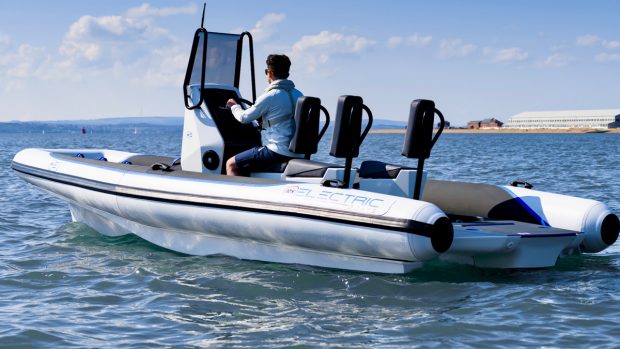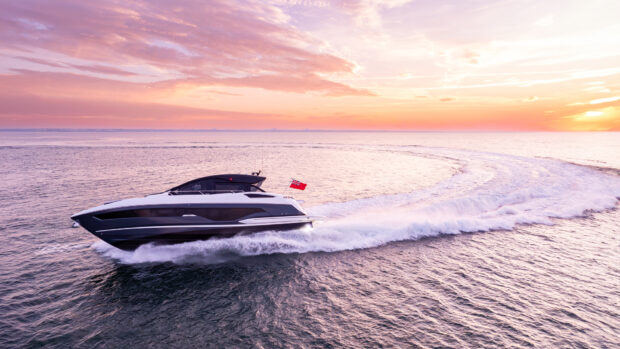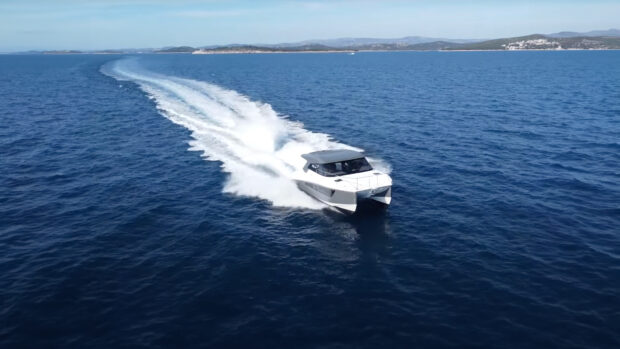Our detailed guide to European destinations.
Of the Baltic states, Estonia has the most facilities for yachts, with many marinas and “guest harbours”. The Embassy in London will send you a free booklet with general tourist information but for marine-specific information, contact the Estonia Marine Tourism Association (see below).
EU member?
No.
Visas?
No.
Ship’s papers
Ship’s registration papers.
Proof of marine insurance.
Crew list, showing dates of birth and passport numbers.
Crew papers
Passports.
Skipper must have ICC.
Report to Customs?
Yes, at a port of entry see booklet from the Embassy. Check out with Customs at the end of your stay in Estonia. There is no need to report in and out of each harbour.
Only two litres of spirits per adult. Notify customs of all valuable items on board eg cameras, watches, radios, etc, as these may be checked later against receipts and money-changing dockets. Keep a record of all your financial transactions in the country, and all bills and receipts. Making trade and selling goods are illegal. You must declare foreign currency, Estonian currency or travellers cheques in excess of 80,000 Estonian krone. For amounts in excess of 200,000 krone, you must have proof of its legal origin.
Duty-frees
May be bought on departing country, at Tallinn at duty-free shop on Customs quay.
Other information
You are advised to let each port officer know where your next stop will be, so that he can notify the next marina or harbour to expect you.
Diesel
Available at Tallinn. May be arranged at other marinas. More fuel berths are being installed.
Water
At marinas.
Shore power 220V AC
At most marinas. Take long extension lead.
LPG
Refilling possible at Tallinn.
Camping Gaz
Not available.
Berthing fees
Cheaper than UK.
Currency
Krone (100 sents).
Credit cards
Widely accepted in capital, Tallinn. Cashpoints in large towns only. Use to obtain Krone in banks.
Eurocheques
Can be changed for Krone in banks. Sometimes accepted in large shops and restaurants.
Travellers cheques
Can change in banks.
Emergencies VHF
Call on Ch 16. Search and rescue is by the Estonian Life Saving Association and the Estonian Board of Border Guard.
Emergencies phone
Police 002
Ambulance 003
Fire 001
Pets?
Can be landed if have certificate of health from a vet, plus proof of anti-rabies injection not less than 30 days, and not more than a year before arrival. No animal younger than four months allowed in.
Telephone boxes
Phone system has been modernised so that now most phone boxes have international dialling.
Dialling code to UK
0044 then the number, omitting first 0.
Weather forecasts
Forecasts in English can be picked up on VHF from Helsinki radio and its satellite stations at 0733 and 1933 GMT. See The Baltic Sea for frequencies.
Charts and books
Admiralty charts. Russian charts of the Baltic states can be bought in marinas.
The Baltic Sea. RCC Pilotage Foundation. Imray.
www.ybw-books.com
British Embassy
Wismari 6, 10136 Tallinn. Tel: 00372 6674700. Visit www.britishembassy.ee or e-mail information@britishembassy.ee
Embassy in UK
16 Hyde Park Gate, London SW7 5DG. Tel: 020 7589 3428, Fax: 020 7589 3430, or log on to: www.estonia.gov.uk or www.tourism.ee or e-mail info@visitestonia.com
Estonian Marine Tourism Association,
Regati 1, 11911 Tallinn. Tel: 00372 6398933.
Languages
Estonian and Russian. Many older people speak German; young people’s second language is English.
September 2001









